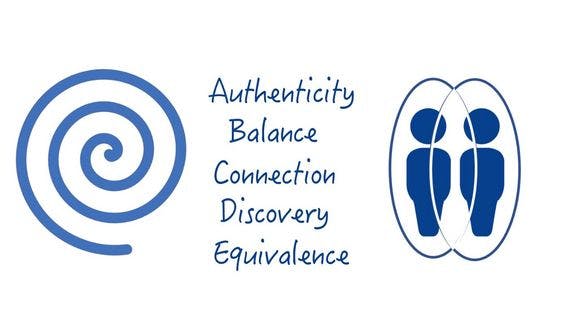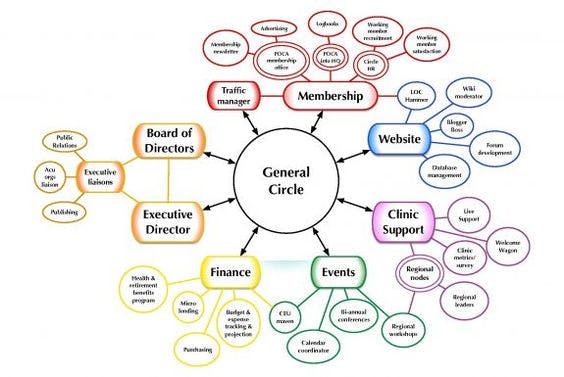
Abstract:
The emergence of web3 technologies and dynamic governance models offers new opportunities for designing inclusive and equitable online communities. This paper examines how these communities can effectively engage members who do not hold formal circle roles while ensuring that their voices are heard and their contributions are valued. By exploring mechanisms for inclusive participation, transparent decision-making, and value creation, we aim to provide a framework for building online communities that empower all members, regardless of their ability to contribute or participate actively.
Introduction:
As the internet continues to evolve, the need for more inclusive and equitable online communities becomes increasingly important. Web3 technologies and dynamic governance models, such as sociocracy, present opportunities for redefining community engagement and value creation. In this context, it is crucial to address the challenges of ensuring that all members, including those who do not hold circle roles or actively participate, are heard and valued.
Inclusive Participation and Decision-Making:
Inclusive participation is critical to the success of any community, and it is especially important in dynamic governance models like sociocracy. Bonnitta Roy, the founder of the Alderlore Insight Center, notes, "sociocracy emphasizes the importance of consent-based decision-making and distributed authority, which requires active participation and engagement from all members." To facilitate participation from all members, communities can adopt strategies such as asynchronous communication channels, accessible meeting formats, and feedback loops that enable input from all members.
Value Creation for Non-Circle Role Members:
Non-circle role members can still make significant contributions to the community, and it is essential to recognize and value their input. Tara Hunt, the author of "The Whuffie Factor", explains that "communities can foster a culture of appreciation by acknowledging and celebrating the contributions of all members, regardless of their formal roles." By providing opportunities for skill development, knowledge sharing, and mentorship, communities can help non-circle role members grow and contribute more effectively. Additionally, leveraging web3 technologies and decentralized platforms can create new ways of acknowledging and rewarding non-circle role members for their contributions, such as token-based incentives or reputation systems.
Ensuring Equity and Fair Representation:
Implementing diversity and inclusion initiatives, such as mentorship programs and clear communication guidelines, can help create a more equitable environment where all members feel heard and valued.
-Brenda Dervin
Equity and fair representation are essential for dynamic online communities' long-term success and sustainability. As Brenda Dervin, Professor Emeritus at The Ohio State University, suggests, "implementing diversity and inclusion initiatives, such as mentorship programs and clear communication guidelines, can help create a more equitable environment where all members feel heard and valued." Communities can establish clear communication guidelines encouraging respectful and inclusive discussions and develop mentorship programs that support underrepresented members and help them build their skills and networks.

Adapting to Changing Needs and Circumstances:
As communities evolve, adapting to changing needs and circumstances is essential. Max Boonen, the founder of cryptocurrency trading firm B2C2, notes that "adaptability is key to the success of any dynamic community. By regularly soliciting feedback and conducting community assessments, communities can identify areas for improvement and adjust their structures, processes, and initiatives accordingly, to remain responsive to their members' needs." This ongoing process of evaluation and adaptation can help ensure that communities remain relevant, responsive, and equitable over time.
Conclusion:
Web3 technologies and dynamic governance models offer exciting possibilities for creating inclusive, equitable, and value-driven online communities. By adopting strategies that promote inclusive participation, transparent decision-making, and value creation for all members, communities can empower individuals and facilitate meaningful connections. However, creating an inclusive and equitable environment requires ongoing effort and commitment. By prioritizing equity, fairness, and inclusion in the design and operation of online communities, we can help shape a more connected, collaborative, and empowering future for all. The key to success is to ensure that all members are heard and valued, regardless of their formal roles or ability to contribute. By providing opportunities for participation, recognition, and skill development, communities can foster a culture of inclusivity that encourages diverse perspectives and values the contributions of all members.
As communities evolve and grow, it is essential to maintain a commitment to equity and fairness and to assess and adapt to changing needs and circumstances continuously. By staying responsive and adaptable, communities can continue to create value and empower their members over time. Ultimately, the success of any community depends on its ability to foster meaningful connections and provide opportunities for growth and contribution. With web3 technologies and dynamic governance models, we have the tools to create truly inclusive and equitable online communities that empower all members to participate, contribute, and thrive.